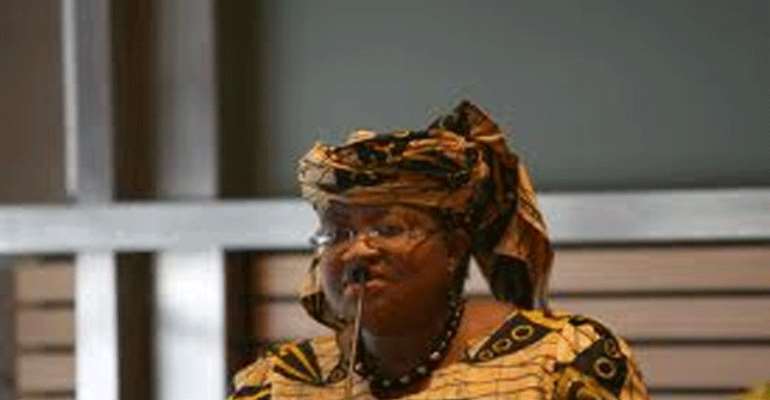Multiple taxation harmful to economy – Okonjo-Iweala

The Co-ordinating Minister and Minister of Finance, Dr Okonjo-Iweala, has said that the multiple taxation is not healthy to Nigerian economy as it s a disincentive to investment.
The minister said if Nigeria would continue to attract foreign investments, diversify the economy, and create more jobs and become one of the top 20 economies of the world by 2020, the tax system must be right.
She spoke at the inauguration of Ministerial Implementation Committee (MIC) on the Harmonisation of Taxes and Levies across the federation in Abuja, on Monday
According to the minister, the issue of multiple taxation has been on the front burner for many years now in Nigeria.
She lamented that despite several attempts by the government to tackle the issue, it has remained unabated – affecting both big and small businesses and the movement of goods and services in the country.
Multiple taxation, according to her, is particularly harmful to the economy because it increased the cost of doing business in Nigeria, discouraged local trade and investment and also gave a negative perception of the Nigerian business environment to foreign investors.
She said that the setting up of the committee arose as a result of the complaint by the Manufacturers Association of Nigeria (MAN) on the multiplicity of taxes on its members which discouraged doing business and business growth.
'According to the MAN report, some states have as many as 97 different taxes, levies and charges that are imposed on businesses. This is simply not economically viable – the costs to the government of administering these various taxes and the costs to business of paying these taxes outweigh their benefits to both the private businesses and the government,' she said.
she said that a recent World Bank Report showed that for every N100 that businesses had to pay in taxes, they paid about N35 in compliance costs, saying that this is a waste of capital that could be reinvested in these businesses to grow them and create more jobs for the economy.
The minister observed that by streamlining and harmonizing taxes across the federation, it would increase Nigeria's productive potential, noting that the multiplicity of taxes on the transportation of goods impairs the integration of internal markets and the establishment of a fully integrated economic space within Nigeria.
'By impairing the integration of the national market, these mobile levies also reduce competition between companies located in different States in Nigeria. With increased competition, we could bring down prices for consumer goods produced by these companies and make our local companies and exports more competitive in the global market,' Okonjo-Iweala stated.
On the committee, she urged it to diligently consider the roadmap, saying that the government would lean on the Attorney General of the Federation and the National Assembly to ensure that the recommendations are made into law.
'Accordingly, our work as a committee is very important and we must do everything to ensure that the roadmap is faithfully implemented and that we all provide support and assistance within our area of responsibility towards implementing the roadmap. In considering the roadmap therefore we should focus on the major deliverables and how we as a committee can ensure their prompt implementation. In particular, we will lean heavily on the assistance of the Attorney General of the Federation and Minister of Justice to push through the implementation of recommendations requiring amendments to laws, especially in considering amendments to the taxes and levies (Approved List for Collection) Act, which is long overdue for review. The Attorney General's assistance will also be required in drafting and publishing Executive Orders as may be required to implement some of the recommendations in the roadmap. I will not forget to mention the need for the National Assembly to cooperate with us in this endeavour,' she said.
In his remarks, the Acting Chairman of Federal Inland Revenue Service (FIRS), Alhaji Kabir Mashi, said that the multiplicity of taxes had continued in the face of concerted efforts to check it, hence the administration's resolve to approach the issue more holistically.
